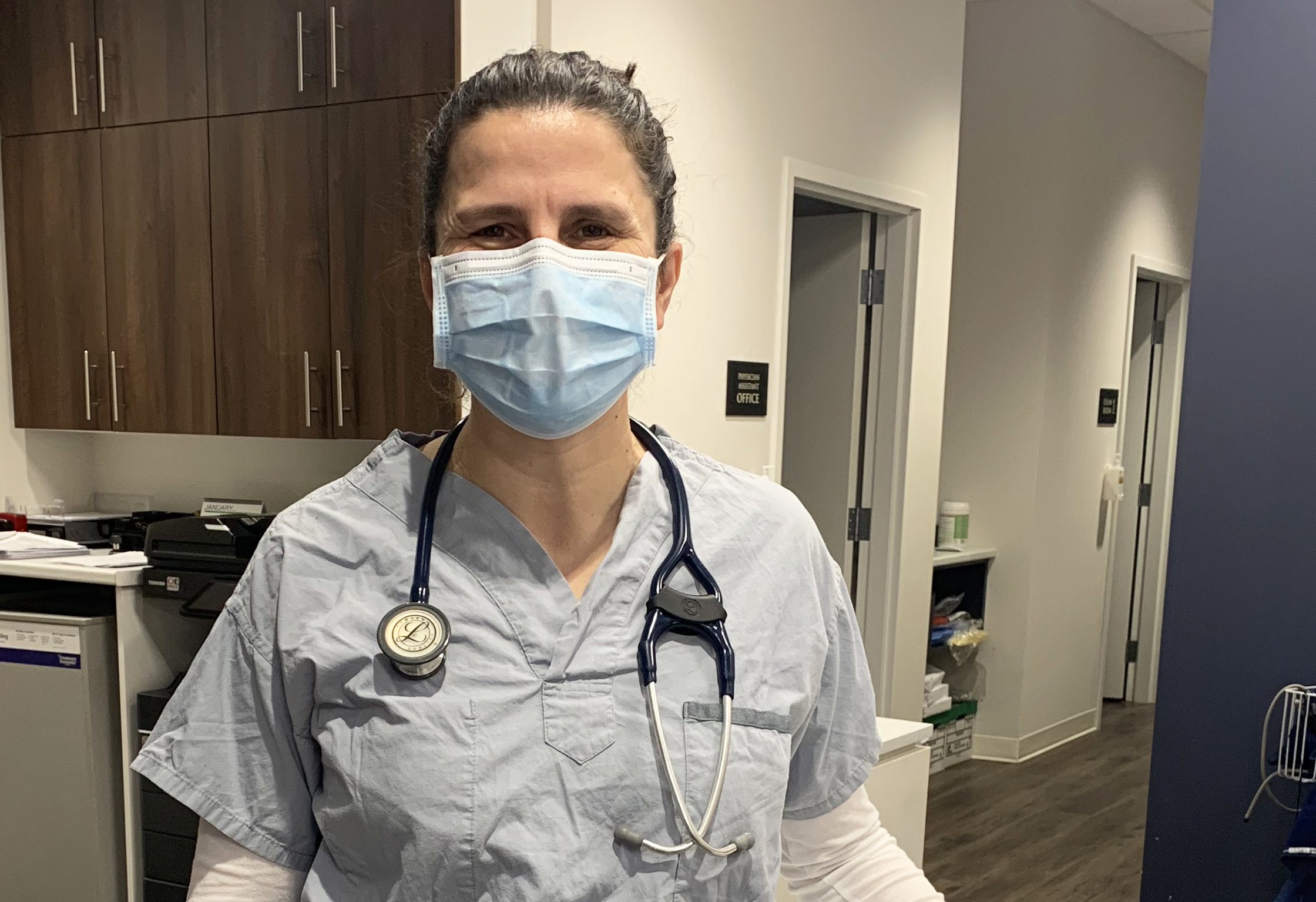WELLINGTON COUNTY – The information about COVID-19 – and now the vaccines to fight it – has been coming fast and furious over the past year. It’s no wonder people are overwhelmed with information and confused about who to trust.
That’s why the Canada Institute of Health Research (CIHR) launched a media blitz in January: to address misinformation and dispel myths head-on.
Dr. Charu Kaushic is the scientific director of the Canadian Institute of Infections and Immunity for the CIHR and a professor of molecular medicine at McMaster University.
In a broad-ranging interview with the Advertiser on Jan. 28, Kaushic answered the most-asked questions and countered some oft-held myths surrounding the vaccines.
How does the vaccine work?
Kaushic explained that the COVID-19 vaccines work differently than the vaccines people are accustomed to.
Traditional vaccines take a weakened or inactivated form of a virus and inject it into the body to trigger an immune response.
The new vaccines, called mRNA vaccines, take genetic information from the virus – the “spike protein” – and that is injected into the body.
“The cells make the protein, they are seen as foreign, and that triggers the immune response,” Kaushic said.
It’s the immune response that produces antibodies, and it’s antibodies that protect recipients from getting infected when the real virus comes along. And since only part of the protein is made, it does not do any harm to the person vaccinated.
Once you’ve had two doses of the Pfizer or Moderna vaccines, you are 95% protected, Kaushic said.
“Ninety-five per cent is not 100% but that’s the protection. Between the first and second dose, you are not 95% protected. That’s why we still need to exercise precautions,” she said.
How can vaccines be safe when they’ve been developed in less than a year?
The mRNA vaccines may be new to laypeople, but researchers have been working on the technology for at least a decade, Kaushic said.
“For a long time (researchers) have anticipated there would be a pandemic and they have been preparing since 2017 for making a pandemic vaccine,” she said.
When the pandemic started, researchers took the virus, used the technology, and started trials, “and the first trials generated good results.”
Kaushic said initial trials included 30,000 people aged 18 to 65 as well as those over 80.
Trials are ongoing now for younger age groups, pregnant women and people with underlying health conditions.
“We expect to know more (about these groups) in three to four months,” she said.
Kaushic said because the vaccine is a world-wide priority and governments have a lot of money on the table to have the vaccine manufactured and distributed, normal timelines have been compressed.
Personnel have been redeployed to vaccine production and it’s all hands on deck.
“The work has been compressed at a cost to governments, but there’s no compromise on safety,” she said.
Have there been side effects, allergic reactions or deaths as a result of the vaccine?
Kaushic said she hasn’t heard of any deaths as a result of the vaccine and allergic reactions are rare.
In terms of side effects, some people feel nauseated and feverish after receiving the vaccine but that only lasts a day or two.
Are there reliable resources where people can find out more?
Kaushic said there is a host of good information out there about the virus, the vaccines, and health protection measures, and listed the World Health Organization, Health Canada and the Centres for Disease Control and Prevention as appropriate places to start.
“People should not be getting their news from Facebook,” she said.
“Get information from people who know what they are talking about. So ask your doctor or health specialist. Check authoritative articles.
“It’s important to get the right information and it’s incumbent on people to make sure they check their sources.”
Local expert
Dr. Julie Ray, a family physician at the Upper Grand Family Health Team, in Elora, said her patients are anxious about the vaccine too, although most are eager to get it.
“The biggest question is ‘when do I get it and where do I get it?’” she said. “And my biggest answer is ‘I don’t know yet.’”
The second question: is it safe?
“It’s not so much misinformation, but reservations about how quickly things have progressed,” Ray said.
“I personally haven’t had that many conversations that go that way. Most are saying ‘Sign me up,’ or ‘put me on a list.’”
Ray said scientists believe there will be herd immunity when approximately 70 per cent of the population is vaccinated.
“The idea is if I get sick with COVID, there needs to be enough people immune to it so I can’t get them sick and spread it,” she said.
Right now, the vaccine is not approved by Health Canada for children, pregnant women or people who with certain underlying health conditions, but trials are ongoing, and that information will change when results are known.
Ray said people who fall in that category should talk to their healthcare provider.
“You can get the vaccine if it’s deemed appropriate. Doctors will discuss it on a case-by-case basis, assessing the risk\benefit in each case,” she said.
Ray added family doctors will be part of the broad plan to administer the vaccine, but long-term care residents and front-line healthcare workers are the priority right now.
With news of supply-chain issues for distribution of the vaccine, previous timelines are now out the window.
But that doesn’t mean you shouldn’t be prepared for it.
“If you are in a special population, don’t leave it until public health calls with an appointment. If you’re vaccine-hesitant, talk to your doctor. Ask questions. Express your concerns,” Ray said
“Understanding is knowledge and knowledge is power.”
Wellington-Dufferin-Guelph Public Health also has vaccine information on its website.




